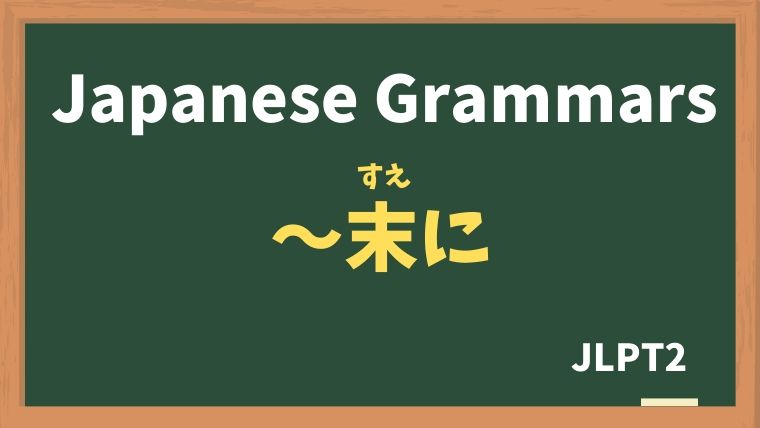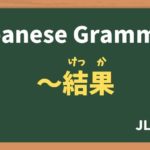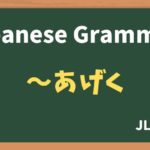
Explanation:〜末に
fa-check-circleMeaning
"色々したけど、けっきょく・・・ / 色々〜した結果、・・・
"after 〜, ended up・・・"
Used in Japanese to indicate that after a long process, effort, or consideration, a certain result or conclusion was reached. It emphasizes the idea that the action or result occurred after much time or effort was spent on something.
fa-check-circleForm
V(ta form) + 末に
Nの + あげく
fa-check-circlePoints
- Extended effort or process: "〜末に" highlights that the final result comes after a prolonged period of effort, struggle, or deliberation.
- Conclusion or result: The phrase always leads to a result, often significant or important, after the extended process.
- Formal usage: It is used in more formal contexts, such as written reports, news, or when narrating a serious decision.
fa-check-circleJLPT Level
N2
Sample sentenes
どのパソコンを買うか色々悩んだ末に、MacBookProを買うことにした。
After much deliberation about which laptop to buy, I decided to get a MacBook Pro.
色々と考えた末に、大学を卒業したら国へ帰ることにしました。
After much thought, I decided to return to my home country after graduating from university.
妻と話し合った末に、離婚することになりました。
After discussions with my wife, we decided to get a divorce.
何度も失敗を繰り返した末に、やっと新商品が完成した。
After repeated failures, the new product was finally completed.
三年間、日本語を勉強した末に、JLPT N1に合格した。
After three years of studying Japanese, I passed the JLPT N1 exam.
Vocabulary
| Japanese |
English | |
| 離婚する | りこんする | to divorce |
Similar Sentence Patterns








